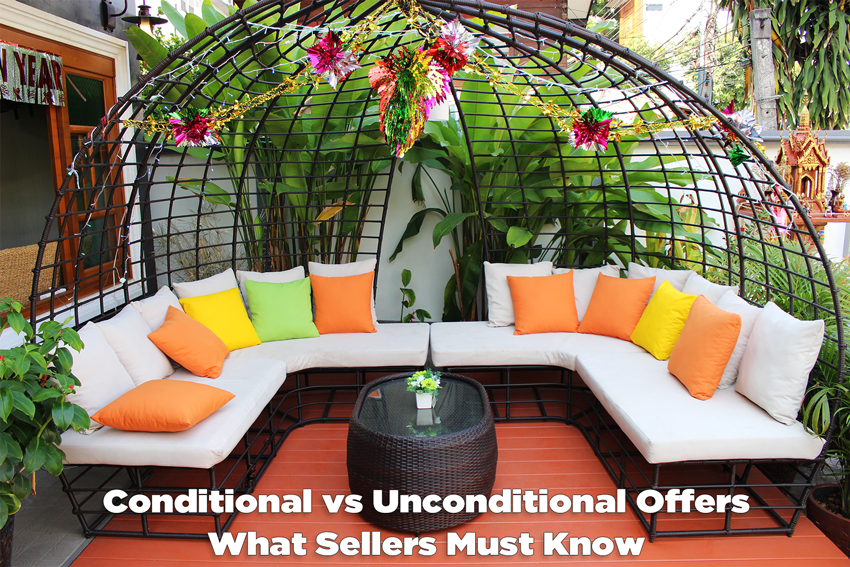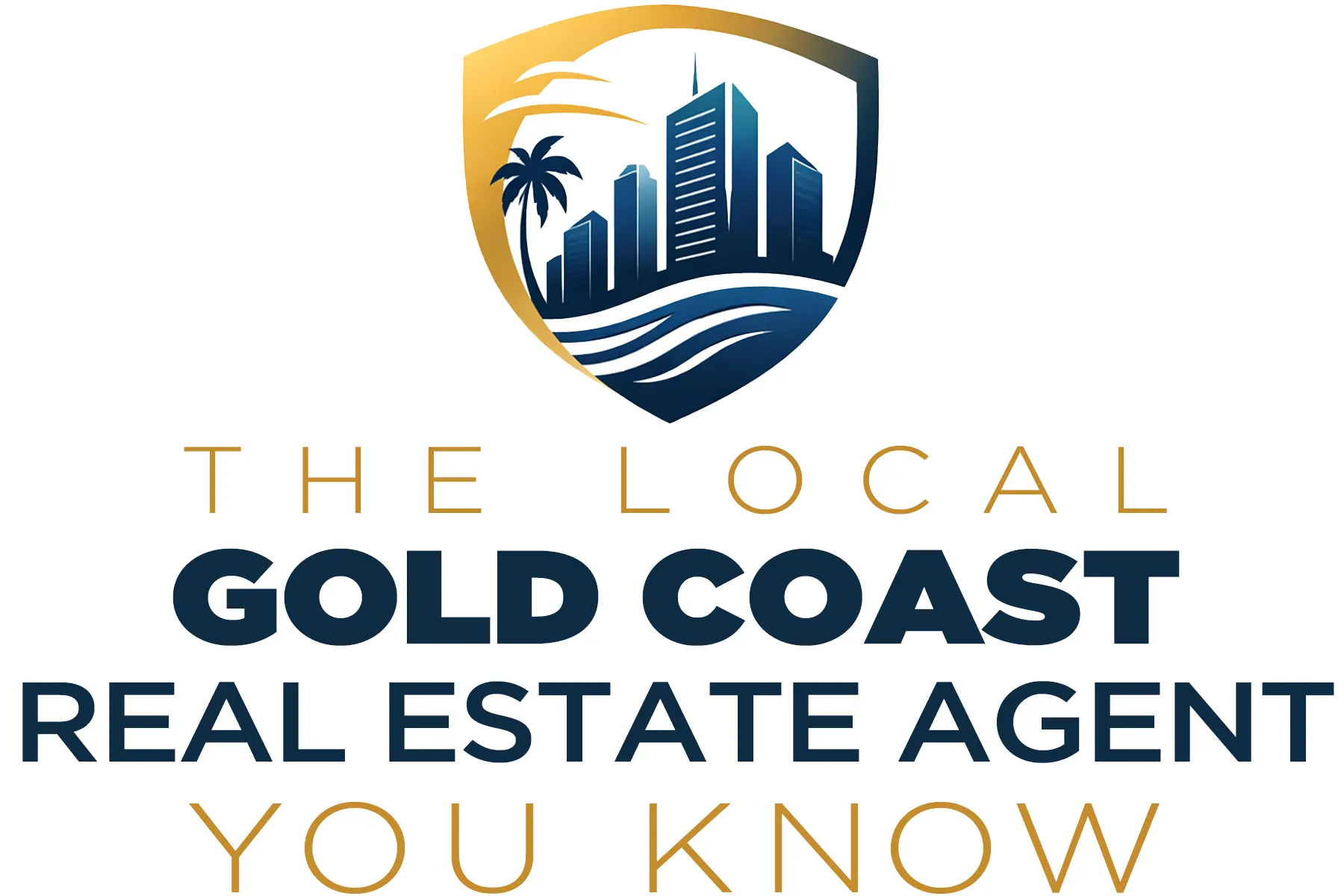
Conditional vs Unconditional Offers: What Sellers Must Know, and How Do They Affect the Sale Process on the Gold Coast?
If you’re selling a home or investment property on the Gold Coast, understanding the difference between conditional and unconditional offers is crucial. These terms directly impact the certainty, speed, and complexity of your property sale.
What Is a Conditional Offer?
A conditional offer is an agreement to purchase your property, but only if certain conditions are met by the buyer within a specific timeframe.
Common conditions include:
- Subject to finance: Buyer needs formal loan approval.
- Subject to building and pest inspection: Buyer must be satisfied with the results.
- Subject to the sale of another property: Buyer wants to sell their current home first.
- Subject to legal or due diligence review: Particularly common in high-value or off-market sales.
These conditions protect the buyer and provide an exit route if things don’t go as planned.
✅ What Is an Unconditional Offer?
An unconditional offer means the buyer is ready to proceed with the purchase with no further requirements or delays. Once both parties have signed the contract and the cooling-off period has ended (or been waived), the deal becomes legally binding.
This type of offer is stronger, faster, and more attractive to most sellers, especially in a competitive market.
Key Differences at a Glance
| Feature | Conditional Offer | Unconditional Offer |
| Unconditional Offer | Subject to conditions (finance, etc.) | Legally bound with no conditions |
| Seller certainty | Lower – buyer can withdraw | Higher – deal is firm |
| Time to settlement | Longer (dependent on conditions) | Typically faster |
| Risk of deal falling through | Higher | Lower |
| Attractiveness to seller | Depends on strength of market | More attractive in most cases |
How Conditional Offers Affect You as a Seller
1. Uncertainty – Buyers can terminate the contract if they can’t meet a condition (e.g. they’re declined for finance). This can delay your sale or force you to return to the market.
2. Delayed Timeline – Settlement may be held up while the buyer works through their conditions, often taking 14–21 days to confirm financing or complete inspections.
3. Negotiation Power – If multiple offers are on the table, you may prefer a slightly lower unconditional provide for greater certainty and speed.
4. Back-up Offers – If accepting a conditional offer, it’s wise to allow your agent to collect backup offers in case the primary contract falls through.
How Unconditional Offers Affect the Sale Process
1. Speed and Simplicity – No waiting for bank approval, inspections, or other hurdles. Unconditional offers enable the sale to proceed to settlement much more quickly.
2. Higher Confidence – You can plan your move, next purchase, or financial decisions knowing the deal is locked in.
3. Buyers May Offer Less – Some buyers make lower unconditional offers in exchange for reducing your risk and speeding up the process.
Seller Insight: Always Review the Conditions Carefully
Conditions may seem standard, but the timeframes and specific wording can make or break the deal. A vague pest clause or a long finance window can lead to unnecessary stress or lost opportunities.
That’s why I always recommend:
- Reviewing each offer with your solicitor or conveyancer
- Comparing both price and terms
- Understanding the buyer’s financial position before accepting
Which Type of Offer Is Better for You?
It depends on your situation and market conditions:
You may prefer a conditional offer if:
- The market is slower, and offers are limited
- The buyer’s finances orthe sale of another home seems likely to proceed smoothly
- You’re not in a rush to settle
You may prefer an unconditional offer if:
- You need to sell fast (e.g. for a time-sensitive purchase or relocation)
- You want maximum certainty with minimal stress
- You have intense buyer competition and leverage
Frequently Asked Questions (FAQs)
Q: Can a buyer back out of an unconditional offer?
Only under rare and severe circumstances, like misrepresentation or major legal issues with the property. Otherwise, they risk losing their deposit or facing legal consequences.
Q: Can I negotiate the conditions in a conditional offer?
Absolutely. You can counteroffer with revised timeframes, remove unnecessary conditions, or even request the buyer to go unconditional.
Q: Are most Gold Coast offers conditional?
In general, yes, especially with owner-occupier buyers. Investors and cash buyers are more likely to make unconditional offers.
Q: Should I accept a lower unconditional offer over a higher conditional one?
Often, yes. Certainty and speed can outweigh a slightly higher price, especially if you’re buying again or want to avoid stress.
Need Expert Guidance on Offer Types? Let’s Talk.
As a local Gold Coast real estate agent, I help sellers confidently assess offers, not just by the number, but by the actual value of each deal. If you’re unsure how to handle multiple offers or conditional clauses, I’m here to guide you step-by-step.
More Smart Seller Questions Answered
Selling Your Gold Coast Property? Avoid These Costly Mistakes
Getting ready to sell on the Gold Coast? Don’t let avoidable missteps sabotage your success. Overpricing your home, neglecting its presentation, or hiring the wrong agent can lead to fewer inspections, lowball offers, and drawn-out sales that cost you time and money.
Too many sellers underestimate the power of innovative marketing, skip essential repairs, or delay legal paperwork—all of which can kill buyer confidence fast. Even emotional choices—like rejecting reasonable offers or refusing to negotiate—can stall momentum and damage your outcome.
A successful sale isn’t just about listing your property—it’s about doing it right. Learn the top pitfalls to avoid and take control of your selling journey with confidence and clarity.
THIS IS HOW YOUR JOURNEY TO A SUCCESSFUL GOLD COAST PROPERTY SALE STARTS
My simplified guide below will take you through a 20-step process for selling your property anywhere on the Gold Coast;
I proudly sell homes across the entire coast.

1. PREPARING YOUR GOLD COAST PROPERTY FOR SALE + SOME OF THE LEGAL REQUIREMENTS
- Tidying gardens and decluttering everything inside and out.
- All homes for sale, are legally required to have hardwired photoelectric, interconnected smoke alarms.
Non-removable 10-year battery smoke alarms can be installed as an alternative.
- By law, you are required to complete a pre-contractual seller’s disclosure statement: generally related to limitations, restraints, or defects in the property title, such as easements, covenants, leasing, zoning, etc.
- A pool safety certificate is also required if you have a swimming pool or if the property has a shared swimming pool (Body Corporate).

2. COMPARATIVE MARKET ANALYSIS REPORT FOR YOUR GOLD COAST PROPERTY
After showing me around your property, I will provide you with a Comparative Market Analysis (CMA) report. This is a detailed, legally required analysis of your home’s market value.
The CMA is based on recently sold and for-sale properties similar to yours in the immediate area. I will need to view your home to prepare this report.

3. SETTING A MARKETING BUDGET FOR YOUR GOLD COAST HOME
The third step in selling your home is to create a marketing budget.
By law, this must be based on actual costs.
There are various marketing options to consider, such as:
– Internal, External and Drone Photography.
– Property and House Plans show potential buyers the exact layout of your home and property.
– Internet Advertising on platforms such as RealEstate.com.au, Domain.com.au, Facebook.com, Instagram.com, etc.
– For Sale Sign on the street is still essential to attracting potential buyers. Even though many buyers start their search online, they often drive around neighbourhoods to see what’s available.
A simple fact: Not having a For Sale sign can significantly reduce the number of people who see your property and may be interested in buying it.

4. PREPARING AND APPROVING THE FORM 6 AGREEMENT WHEN SELLING A GOLD COAST PROPERTY
A Form 6 Agreement is a document provided by the Queensland State Government. It outlines all relevant details of the property sale, including the marketing budget.
Our administration team will prepare this form for you and send it for your review and approval.

5. PAYING THE MARKETING BUDGET FOR YOUR GOLD COAST PROPERTY
Once you have approved the Form 6 Agreement, the next step is to pay for the marketing budget that you have chosen.

6. STARTING THE ADVERTISING PROCESS
Once your payment is received, the advertising campaign will commence.
Advertising strategies will align with the choices you made within your marketing budget.

7. MONITORING MARKET RESPONSE
If your property hasn’t received offers within 30 days, don’t assume there’s no interest.
It often means the price isn’t aligned with what buyers are willing to pay at this time.
This is your signal to review and adjust your pricing strategy so your home remains competitive and receives the attention it deserves.

8. ARRANGING BUYER VIEWINGS
When buyers express interest in your property, viewings will be arranged to allow them to see your home in person; you need to be away from the property during these viewings.
This helps potential buyers feel relaxed and visualise themselves as the new owners, thereby forming a deeper connection with your property.

9. CONSIDERING A BUYER’S OFFER
When you receive an offer on your home, it means a buyer is serious and ready to move forward at a certain price.
This is a key moment in your selling journey. Take the time to go over the offer carefully.
Look beyond the price; check the terms, conditions, and settlement timeframes. Make sure it works for you before accepting, countering, or declining.

10. ACCEPT, COUNTER, REJECT
When an offer is presented, you will need to respond by accepting, countering, or rejecting it.
Accepting locks in the agreed-upon price and terms.
Countering proposes changes and initiates further negotiations. If countering, present revised terms clearly; open, respectful communication is key for a smooth sale.
Rejecting means the offer is unacceptable; in this case, respond promptly and professionally, explaining your reasoning for the decision.

11. YOUR LEGALITIES
When you finally accept an offer, you will engage your conveyancer or solicitor to facilitate the legal requirements to complete the sale.
If you are part of a Body Corporate, you will need to provide a Disclosure Statement from them.
Your solicitor will use PEXA to settle your property. Part of the process requires Verification of Identity. Also, anyone selling a property must complete an ATO Clearance Certificate.

12. BUYER’S DEPOSIT
The buyer’s deposit is a crucial step in the property purchase process; it will be held in the agency’s Trust account.
This is a tangible expression of the buyer’s commitment to purchase your property.

13. BUILDING AND PEST INSPECTIONS
Typically, a buyer will arrange for a building and pest inspection report to be completed, usually within 14 days of the contract date.
Additionally, they may have the contract subject to finance, which is generally applicable for 21 days from the contract date.

14. COMPLETING YOUR GOLD COAST PROPERTY SALE
Based on the outcome of the building and pest inspection report, as well as any finance being sought, the buyer will proceed with their offer or withdraw it.
At this point, the sale either falls through or becomes unconditional.

15. LOOKING FOR YOUR NEW PROPERTY
If the sale becomes unconditional, it is time to start looking for a new property. Remember, there is no need to rush.
It is essential that you take your time, as this needs to be a very considered purchase.
Your new home is of substantial value and can be costly if you change your mind. Something you may want to investigate is Short-Term Bridging Loans.

16. ALTERNATIVES YOU SHOULD CONSIDER
An alternative to seriously consider when deciding where to live between selling and buying is renting while you look for a new property.
Renting for a short period gives you breathing room; it allows you time to clear your head, make a confident, considered decision, and ultimately buy where you truly want to live, with no pressure or panic.

17. TIME FOR YOU TO MOVE
Leaving your home opens doors to a new chapter full of new beginnings. Embrace the excitement of a fresh start and cherish the memories you’ve made.
Every box you pack brings you one step closer to a new adventure full of possibilities that lie ahead.

18. YOUR SALE CONCLUDES
The culmination of the property sale is settlement; it marks the transfer of the property to the new buyer.
As the final chapter concludes, this marks a sense of achievement: your property has now SOLD.

19. YOUR FUTURE OPTIONS
If you have chosen to rent, you will continue to look for and eventually purchase a property, apartment, or perhaps even buy land and build; now there’s something to consider.

20. TIME TO UNWIND AND MAKE YOUR NEW HOME YOUR OWN
As you unpack and furnish your new home, embrace the gradual process of creating your haven.
Enjoy the transformation, one room at a time.
Relax in the tranquillity of your surroundings and immerse yourself in the gentle sounds of your new neighbourhood.
Explore the nearby parks and cafes; enjoy the unique charm of your new community.
Remember, settling in is a journey in itself; it’s not a race. Embrace the process of creating a home that reflects your unique style and personality.
Whether you’re downsizing, relocating or just ready to move on, I’ll guide you through every step of selling your Gold Coast home with confidence and ease.
Navigating the intricacies of selling your property can be complex, but it doesn’t have to be.
My 20-step guide provides a simplified general overview; as you would naturally expect, your steps may vary.
Author – Craig Douglas

Are you ready for a conversation about selling your Gold Coast home?
Let’s get you Selling
LET’S GET YOU SOLD
Craig Douglas 0418 189 963
Professional | Knowledgeable | Experienced
You can find me working at a Boutique Real Estate Agency
These are just some of the suburbs that I proudly sell homes in:
Tallai
Please Note: The information contained in this document is for general information purposes only and does not constitute legal advice. The laws and regulations governing the sale of property in Queensland are complex and constantly changing. It is important to seek the advice of a qualified property lawyer or conveyancer before making any decisions about the sale of your property. This document does not take into account your individual circumstances and may not apply to your situation. By reading this document you agree that you have not relied on the information contained herein and that you will seek independent legal advice before taking any action.
This page was proudly created by Craig Douglas, your local independent Gold Coast real estate agent, working for a Boutique Real Estate Agency. Selling residential and commercial properties, from those that are awe-inspiring, through to a diamond-in-the-rough, otherwise known as a “renovator’s delight“.
I negotiate and sell on behalf of property owners who want to get the best possible price, with the least amount of hassle. Let’s talk about the process of selling your property over a coffee to get you started – 0418 189 963



